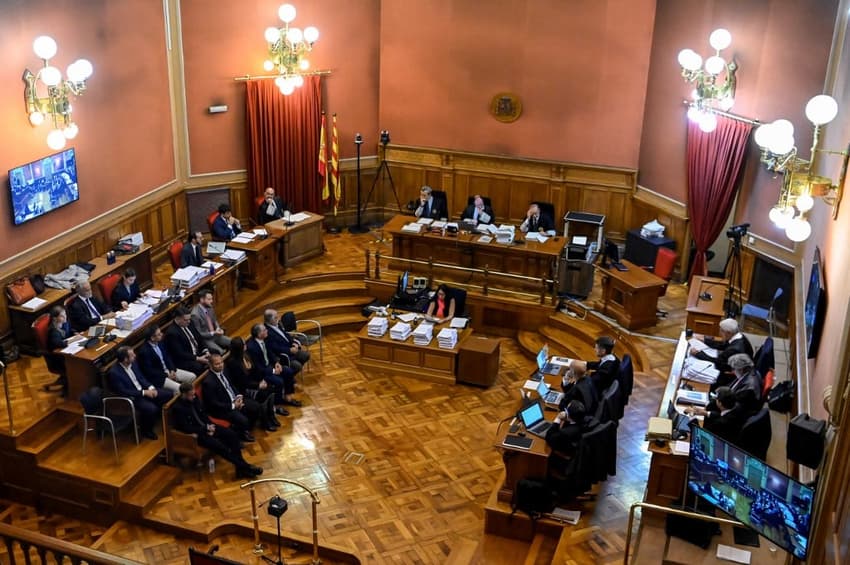Spain moves to protect whistleblowers

Spanish lawmakers on Thursday approved draft legislation to protect anyone who exposes serious offences or corruption cases in the public or private sector in line with a 2019 European directive.
Justice Minister Pilar Llop hailed the bill in parliament as "a very important text for the prevention of corruption and the fight against it".
The bill, which now goes to the senate, seeks "to protect anyone who in any employment or professional context identifies and exposes serious criminal or administrative offences".
It also includes an obligation to create an "internal reporting system" for exposing crimes that guarantees confidentiality and allows for the whistleblowers to remain anonymous.
The system must be put in place in companies with more than 50 employees as well as in public entities, political parties, unions and organisations that receive public funding.
The bill also sets up an external alert system for whistleblowers by creating an "independent authority for the protection of informants".
It also includes legal measures to protect citizens who report crimes as well as journalists and their sources.
Such tools aim to protect whistleblowers from "unacceptable" consequences such as "contract terminations, intimidation, unfair conduct and reputational damage".
The text also states that contractual confidentiality clauses should be rendered null and void if they restrict the right or capacity to report serious offences.
The text is in line with rules adopted by the EU in 2019 to protect whistleblowers from reprisals to ensure they are not singled out for retaliation for exposing alleged wrongdoing affecting the public.
Comments
See Also
Justice Minister Pilar Llop hailed the bill in parliament as "a very important text for the prevention of corruption and the fight against it".
The bill, which now goes to the senate, seeks "to protect anyone who in any employment or professional context identifies and exposes serious criminal or administrative offences".
It also includes an obligation to create an "internal reporting system" for exposing crimes that guarantees confidentiality and allows for the whistleblowers to remain anonymous.
The system must be put in place in companies with more than 50 employees as well as in public entities, political parties, unions and organisations that receive public funding.
The bill also sets up an external alert system for whistleblowers by creating an "independent authority for the protection of informants".
It also includes legal measures to protect citizens who report crimes as well as journalists and their sources.
Such tools aim to protect whistleblowers from "unacceptable" consequences such as "contract terminations, intimidation, unfair conduct and reputational damage".
The text also states that contractual confidentiality clauses should be rendered null and void if they restrict the right or capacity to report serious offences.
The text is in line with rules adopted by the EU in 2019 to protect whistleblowers from reprisals to ensure they are not singled out for retaliation for exposing alleged wrongdoing affecting the public.
Join the conversation in our comments section below. Share your own views and experience and if you have a question or suggestion for our journalists then email us at [email protected].
Please keep comments civil, constructive and on topic – and make sure to read our terms of use before getting involved.
Please log in here to leave a comment.